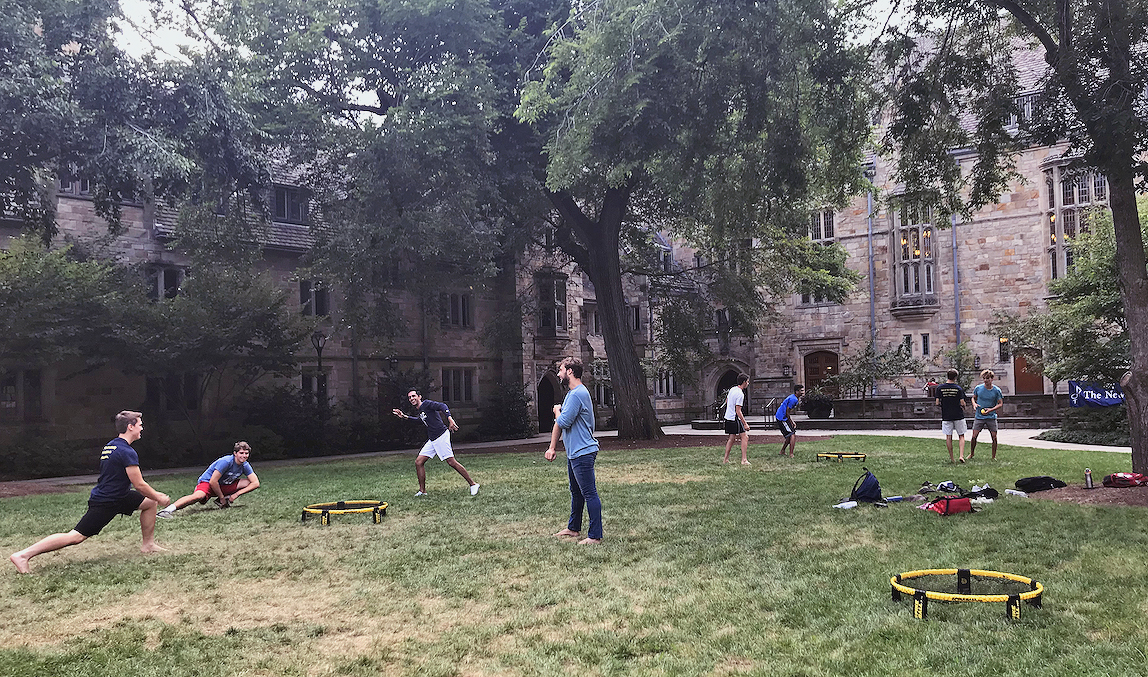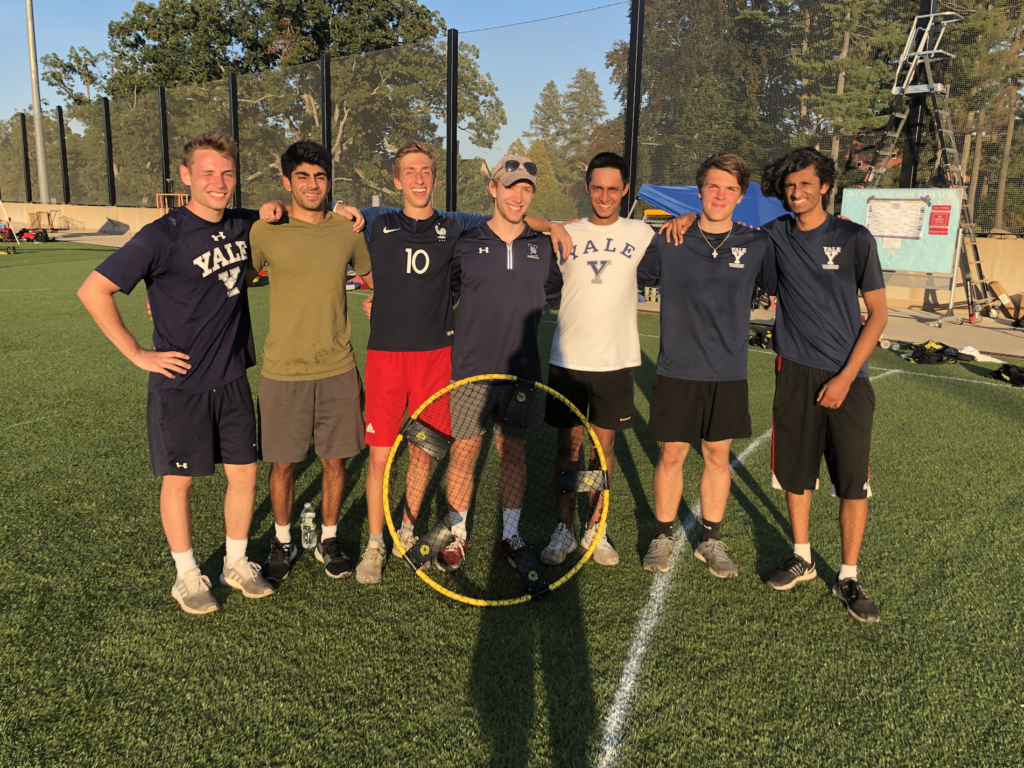
Courtesy of Max Model
The 2019 Spikeball Fall Sectionals were coming to a close, and the big matchup had arrived: UConn vs. Yale, two Connecticut powerhouses competing to advance to the end of the tournament. In the third set of the C-team matchup between the two schools, Yale fell in a heartbreaking 21–19 loss, costing the Bulldogs the series and relegating them to a fourth-place finish.
That was just the beginning of Yale club spikeball’s 2019 season. The loss motivated the team throughout the season — the team worked towards what would have been its first Collegiate National Championship in Maryland in spring 2020.
But then a new opponent emerged, one much more intimidating than UConn or any other spikeball team in the country: COVID-19. When Yale made the decision to keep students away from campus after spring break, it was clear that the spikeball team’s season was over.
“We were bummed to say the least,” said Max Model ’21, co-captain and founder of Yale club spikeball. “At least for me, having already missed a national championship because of my ACL injury, this was not the first time that I had worked really hard for something and then been unable to compete for it. It’s definitely upsetting, but sometimes that’s just how it is.”
With news of Yale’s campus reopening for the 2020-21 school year, there was a rush of newfound excitement. Most of the team is back on campus, joined by many fresh faces who are anxious to get involved with Yale’s most elite spikeball team. However, after the Ivy League’s July 8 decision to cancel all athletic competition until Jan. 1, the club spikeball team has been unable to get back to competitive play despite being on campus.
The club has been searching for alternative ways to enjoy spikeball and strengthen the team for when competition is allowed to start up again. And thanks to spikeball’s minimal setup and ability to be played while adhering to social distancing, it has not been too difficult for the team to improve and stay connected.
“Over the past several weeks a few of our veteran members have been playing informal pick-up games with masks on around Yale’s residential college courtyards,” said Rohan Garg ’21, one of the team’s co-captains. “This year, we have been focusing a lot on individual skill development by conducting drills to enhance specific parts of the game [such as] serving, setting, receiving serves [and] defense.”
However, it is not just the vets who are excited to get back into the game. Every year, first-year players comprise a large percentage of the club, thanks to the club’s “no experience necessary” attitude, Model said. Both rookies and experienced spikeballers are encouraged to improve their skills and participate in practices with returning members of the team. But COVID-19 has canceled practices and shifted most in-person meetings online, complicating how the club would recruit its incoming class and raising concerns over interest among new members.

According to co-captain Matthew Li ’23, uncertainty when it comes to recruiting has not posed an issue for the spikeball team at all.
“The sport is growing very fast, and we actually had over 50 students — mostly first years — express interest in club spikeball in the Virtual Student Organizations Bazaar last month,” Li told the News. “Obviously, it is much harder to be active given the COVID situation and the absence of sophomores, but I have high hopes that the club will be much bigger and more active after quarantine ends.”
In interviews with the News, all three co-captains expressed optimism about the future of the group and a devotion to getting back to the sport they love.
Model founded the Yale club spikeball team in 2017.
Jordan Davidsen | jordan.davidsen@yale.edu
Clarification, Oct. 6: A previous version of the article implied that the team attended the Collegiate National Championship. In fact, the championship was canceled due to COVID-19. The article has been updated to reflect this.







